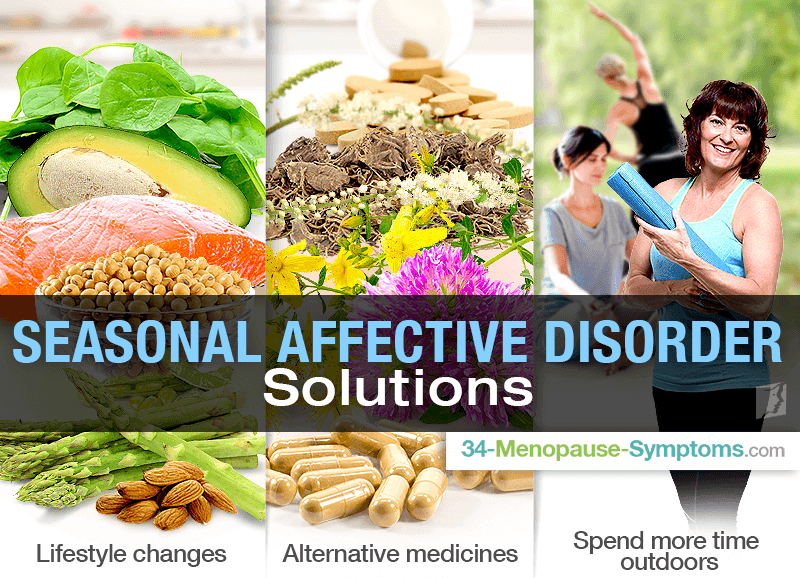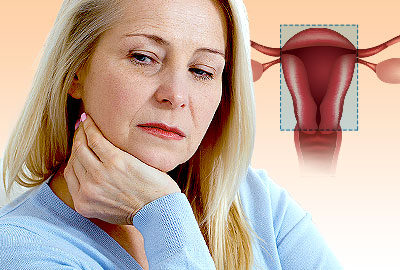Women suffering from seasonal depression often feel depressed most of the day on a routine basis, have trouble sleeping, and are constantly lagged and fatigued, leading to complications for as long as the gloomy days continue. However, treatment is within sight.
Keep reading to learn about seasonal affective disorder causes and ways to get back up and at it for a brighter, chirpier you.
Seasonal Affective Disorder Causes

The exact cause of seasonal depression is yet to be discovered. However, there are some factors that are believed to be at fault for the condition.
Everyone has a circadian rhythm, also known as a biological clock. Accordingly, seasonal depression is believed to be triggered when a decrease in sunlight during fall and wintertime disrupts this clock, leading to a depressed mood.
Changes in seasons can also disrupt the balance of the neurotransmitters serotonin and melatonin in the brain. Both neurotransmitters affect mood, but melatonin also has an integral role in sleep patterns. As such, an interference in their production can lead to depression.
For women who are going through the menopausal transition, fluctuating estrogen levels are believed to be the cause of mood changes, such as depressed moods. Then, for those sensitive to seasonal changes, when paired with gloomy days brought on by the onset of fall or winter, seasonal depression ensues.
Seasonal Affective Disorder Solutions

Treating seasonal depression begins with identifying the underlying cause.
If due to hormonal imbalance from the menopausal transition, depression treatments begin with making simple lifestyle changes. For instance, optimize your diet to include complex carbohydrates, vitamin D, and folic acid, which encourage healthy serotonin levels. Also, make sure to include foods rich in phytoestrogens in attempt to fill the hormonal gap.
For increased effectiveness, add in alternative medicines of phytoestrogenic herbal supplements - black cohosh, red clover, St. John's worth, etc. - or hormone-regulating herbal supplements, like Macafem. The latter encourage your body to produce its own hormones and can, therefore, be considered one of the safest ways to combat hormonal imbalance.
Furthermore, for everyone suffering from seasonal depression, it is recommended to spend more time outdoors - even on cloudy days - and to partake in mind-body exercises like yoga, tai chi, medication, or guided imagery in attempt to cope with the disorder. Also, try to participate in regular exercise 30 minutes a day, five days a week to release feel-good endorphins and relieve stress and anxiety.
Key Takeaways
Seasonal depression comes and goes with the seasons. While its exact cause is yet to be pinpointed, the disorder can be due to a disrupted circadian rhythm or balance of the neurotransmitters serotonin and melatonin. For women passing through perimenopause, fluctuating hormones are most likely at fault. Luckily, there are various solutions. Lifestyle changes and the use of alternative medicines can get menopausal women up and going. Whereas, everyone would benefit from more outdoor time, mind-body techniques, and regular exercise.
Sources
- Lambert, G.W. et al. (2002). Effect of sunlight and season on serotonin turnover in the brain. Lancet, 360(9348), 1840-1842. Retrieved November 13, 2018, from https://www.ncbi.nlm.nih.gov/pubmed/12480364
- Mayo Clinic. (2017). Seasonal affective disorder (SAD): Symptoms & causes | Diagnosis & treatment. Retrieved November 13, 2018, from https://www.mayoclinic.org/diseases-conditions/seasonal-affective-disorder/symptoms-causes/syc-20364651 | https://www.mayoclinic.org/diseases-conditions/seasonal-affective-disorder/diagnosis-treatment/drc-20364722




